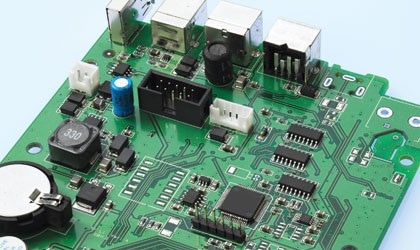
In the webinar titled "Thermal Analysis of Electronics", we demonstrate how thermal analysis is used to characterize the thermal and mechanical properties of many types of components and products as well as to monitor production processes.
The Electronics Industry
Electronics deals with electronic devices, systems, and circuits that involve components such as transistors, diodes, wires and integrated circuits. In practical use, these devices are usually mounted on printed circuit boards.
As we will see, thermal analysis can be used to characterize the thermal and mechanical properties of many types of components and products as well as to monitor production processes.
Thermal Analysis of Electronics
The most important effects that can be analyzed by DSC are the melting point, melting range and melting behavior. DSC is also used to determine the heat of fusion, the glass transition, and oxidation stability.
TGA measures weight changes. The main applications of TGA are content determination, thermal stability, decomposition kinetics, and the analysis of composition.
TMA is normally used to study the expansion or shrinkage of materials and the glass transition.
DMA is used to determine the modulus and damping behavior of materials.